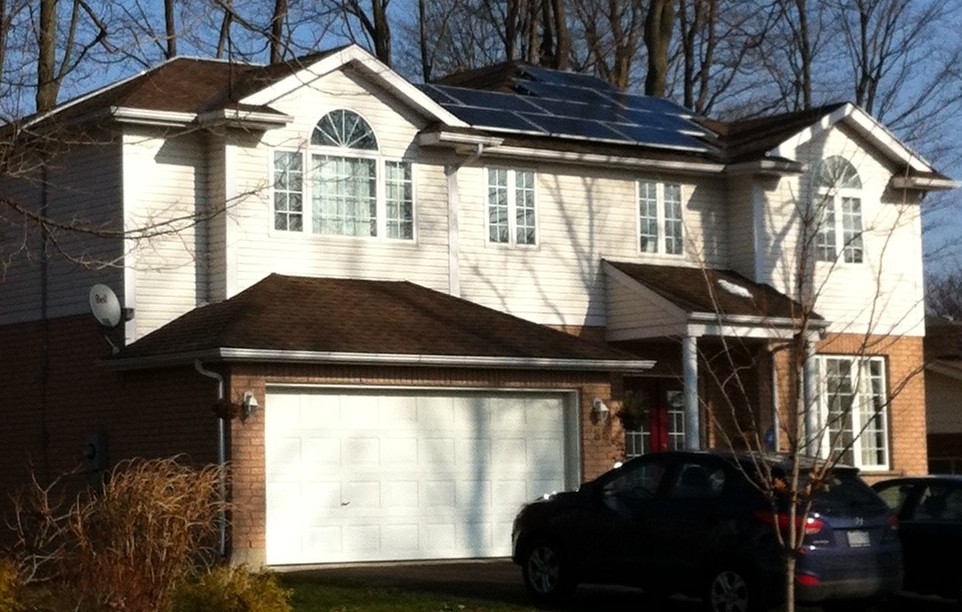
With ever changing technologies in solar panel design, having your own set of solar panels on your home is becoming more affordable and feasible than ever before. I was able to sit down with a friend of mine who is a Professor of Systems Design Engineering to discuss his experience in installing solar panels on his home.
Mark: Thank you for taking the time to speak with me today. The changes in solar panel technology lately have been pretty staggering. What made you decide to install solar panels on your home?
KP: I’ve always thought it would be nice to have some sort of renewable energy in my family’s lives. I am also an energy enthusiast, so once the Ontario government introduced incentives for solar panel purchases and the numbers added up, I knew it was finally time to invest in this technology.
Mark: What about the cost for these solar panel modules. I hear they can be pretty expensive. What is the investment involved in placing solar panels on your home?
KP: The investment for this system in my case was around $30,000 CAD. This was for the 6.63KW solar panel modules as well as installation and the equipment needed to transmit the energy back to the grid. The price for these panels has likely dropped since I installed them.
Mark: That is fairly significant, but certainly the price keeps dropping dramatically as the technology is evolving. How long will it take for you to pay off the cost of these panels?
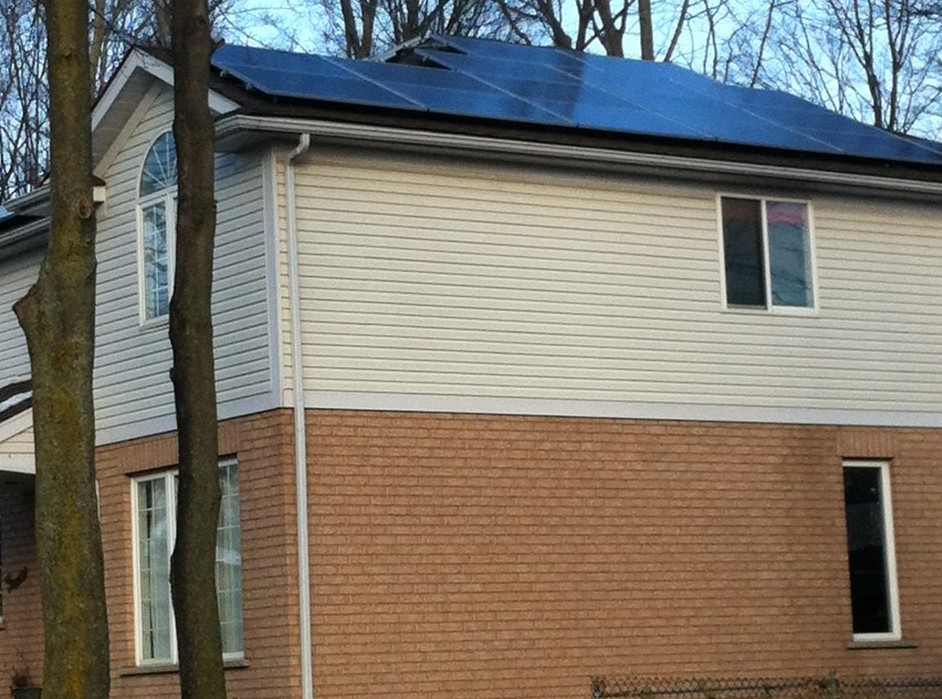
KP: It will take about 10 years for these solar panels to pay off the loan I have for them. After that initial period, any energy generated by them is pure profit. This payback period will change drastically depending on the number of panels and the loan on it, should you get one.
Mark: How much energy is created by these panels?
KP: The expected energy per year is 4500KW/h for our setup. This is about 80% of my own energy usage in a year.
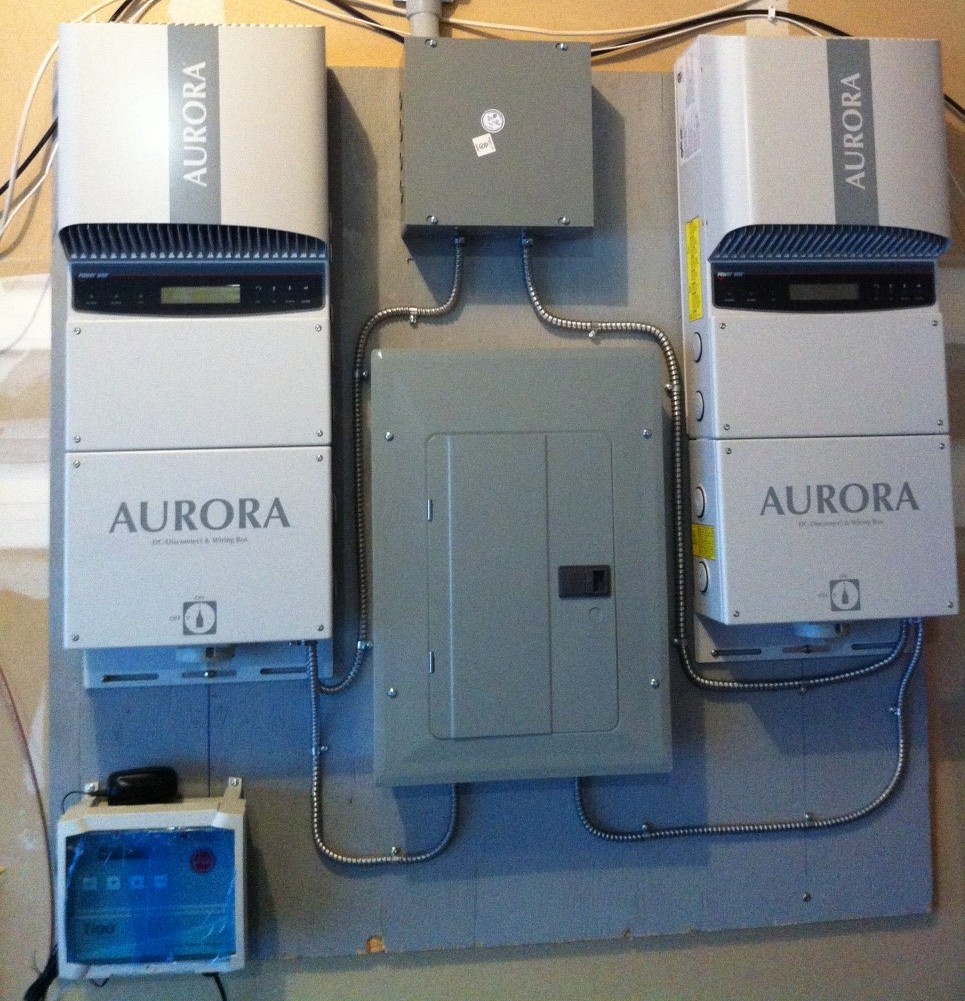
Mark: So you are able to generate this energy and power your own home with it?
KP: No, the energy generated by our solar panels is transmitted back to the power grid. The reason for this is that storing energy is difficult to do, and the amount of energy captured by the panels varies depending on the amount of sunlight on a particular day.
Mark: Does that mean your home is powered by regular electricity from the grid?
KP: That’s correct. Our household is powered by the standard power grid and our solar energy is transmitted back to the power company to provide green energy to any of its customers. This allows us to have consistent power, and contribute to a greener power grid here in Ontario.
Mark: Does the power company then calculate and credit your usage depending on how much energy you send to them?
KP: That’s right; we are issued a credit to our account which offsets our energy bills with the energy we were able to generate with our solar panels.
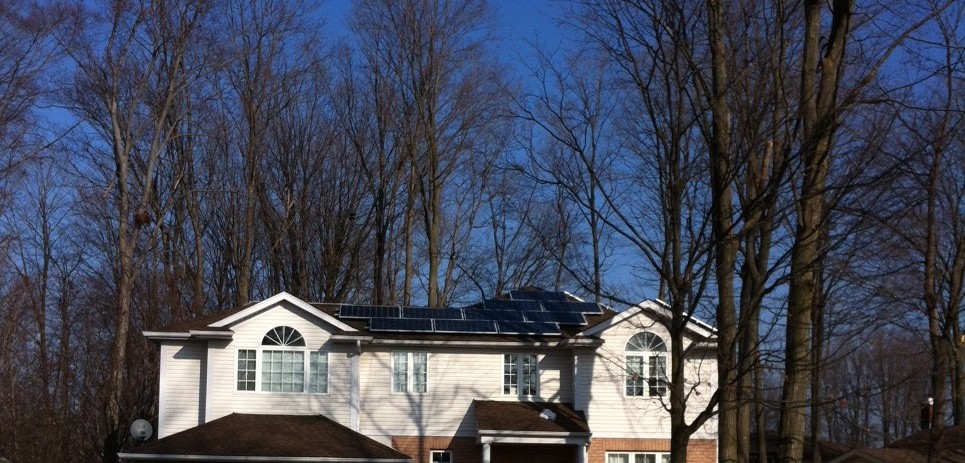
Mark: Your house is completely surrounded by trees. Does that pose an issue for the panels?
KP: We lose about 40% of the potential energy that the panels could be capturing by the amount of tress around the house. Luckily for us, this still leaves us with plenty of energy to capture. For your readers who don’t have large trees to contend with, they will be able to capture quite a lot of sunlight!
Mark: What about snow during the winter and other debris on the panels?
KP: Snow typically melts off within a few days and debris doesn’t settle because the panels are on an incline so neither poses an issue. Significant power is not captured during the winter, so a little snow for a few days is not much of an issue.
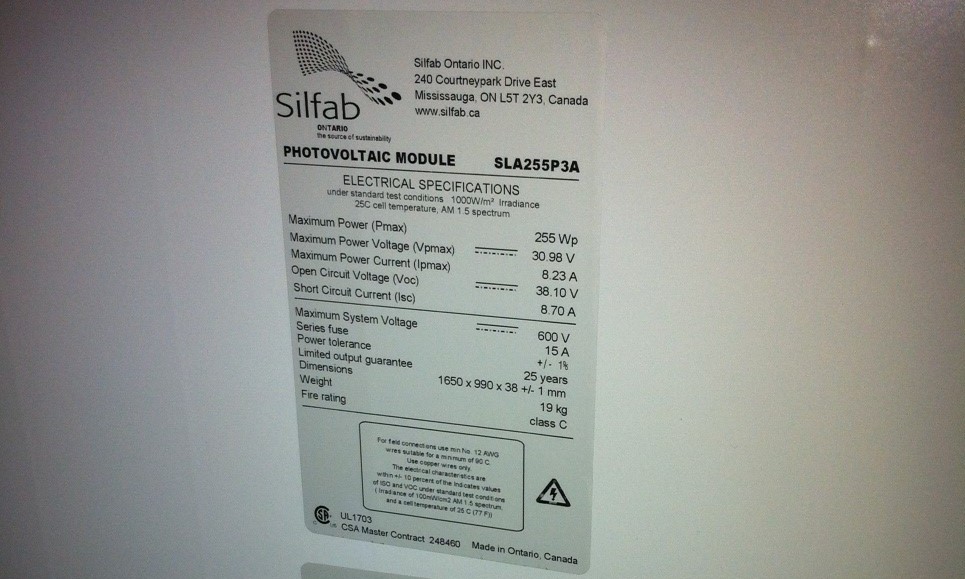
Mark: Does the amount of energy the solar panels capture degrade over time?
KP: All solar panel modules are created differently, but with the panels that I chose, by the end of the 12th year, they will still be able to capture 90% of their original capacity. By the end of the 25th year, they will be able to capture 82% of that. Even after 25 years, these panels will still be able to produce significant green power.
Mark: I know you’re busy, so I’ll just ask one final question. Are there any resources you would recommend for any of our readers interested in placing solar panels on their homes or offices?
KP: Every area of the world will have different regulations and companies that manufacture solar panels. The best thing to do would be to speak to your local government on the regulations for solar panels, and get detailed quotes from companies in your area to figure out if it is the right choice for you.
—
Solar energy is just one of many renewable energy sources that we support here at GreenGeeks. I hope our discussion today shed some light on how you can utilize this great technology in your own home. Just like computers,solar panel technology over time is becoming more efficient and more affordable. How do you think we will make solar panels better in the future? Share your thoughts in the comment section bellow!
